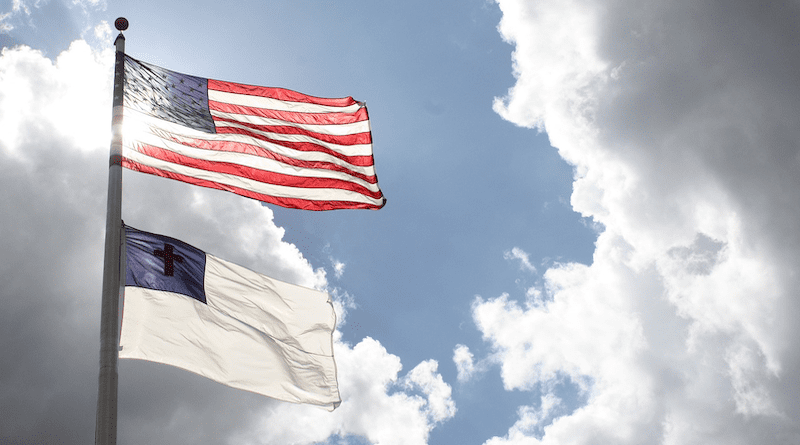Religious Views Of Politics – OpEd
Religion is a major influence on how Americans see political issues. The Pew Research Center found that 66% of American Christians rate Biden unfavorably, including 86% of white evangelical Protestants and 64% of Catholics. But “Majorities of Black Protestants (66%), Jews (62%) and atheists (59%) rate Biden favorably”.
In 2020 according to the Pew Survey Center on American Life, the following percentages of Americans voted for Biden: 18% of white evangelicals, 49% of Catholics, 68% of Jews, and
72% of religious “nones.”
“We see signs of a growing disconnect between people’s own religious beliefs and their perceptions about the broader (American) culture,” Greg Smith, associate director of research at Pew Research Center, told Religion News Service in an interview.
He pointed to findings such as 80% of U.S. adults saying religion’s role in American life is shrinking — as high as it’s ever been in Pew surveys — and 49% of U.S. adults say that religion losing that influence is a bad thing.
The number of Americans who see themselves as a minority group because of their religious beliefs has increased from 24% in 2020 to 29% this year. This 5 point increase in Americans who see themselves as a religious minority, while small, appears across several faith groups: white evangelical Protestants rose from 32% to 37%, white non-evangelical Protestants from 11% to 16%, white Catholics from 13% to 23%, Hispanic Catholics from 17% to 26% and Jewish Americans from 78% to 83%.
Even religiously unaffiliated Americans who see themselves as a minority because of their religious beliefs rose from 21% to 25%.
A majority (55%) of Americans said the U.S. government should enforce the separation of church and state, whereas 16% said the government should stop enforcing it, and another 28% said neither or had no opinion.
Another new poll by PRRI with over 22,000 U.S. adults in 2023, found that Americans are somewhat less likely to support same-sex marriage and LGBTQ nondiscrimination protections than in previous years. In the last poll 76% of all American adults reported supporting LGBTQ nondiscrimination policies in public accommodations, housing and employment, down four points from 80% the year before.
Some religious groups saw larger drops in support from 2022. Muslims dropped 14 points from 70% support in 2022 to 56% in 2023; white evangelical Protestants saw a drop of 6 points from 62% to 56%, and Hispanic Catholics were down 8 points from 86% to 78%.
While majorities of most religious groups favor legal recognition of same-sex marriage (most white evangelical Protestants, Muslims, Hispanic Protestants and Latter-day Saints are in opposition), many religious groups also saw dips in support. The biggest drops in support were among Hispanic Catholics, with a decline of 7 percentage points from 2022, and Muslims who dropped 13 percentage points.
The religiously unaffiliated, Jewish Americans and non-Hispanic Catholics of color consistently showed the highest general support for LGBTQ rights, while Jehovah’s Witnesses, white evangelical Protestants and Hispanic Protestants showed the least support.
PRRI found that support for Christian nationalism — defined as the idea that America was founded as a Christian nation and should remain so — is negatively correlated with support for LGBTQ rights across all 50 states in the USA.

